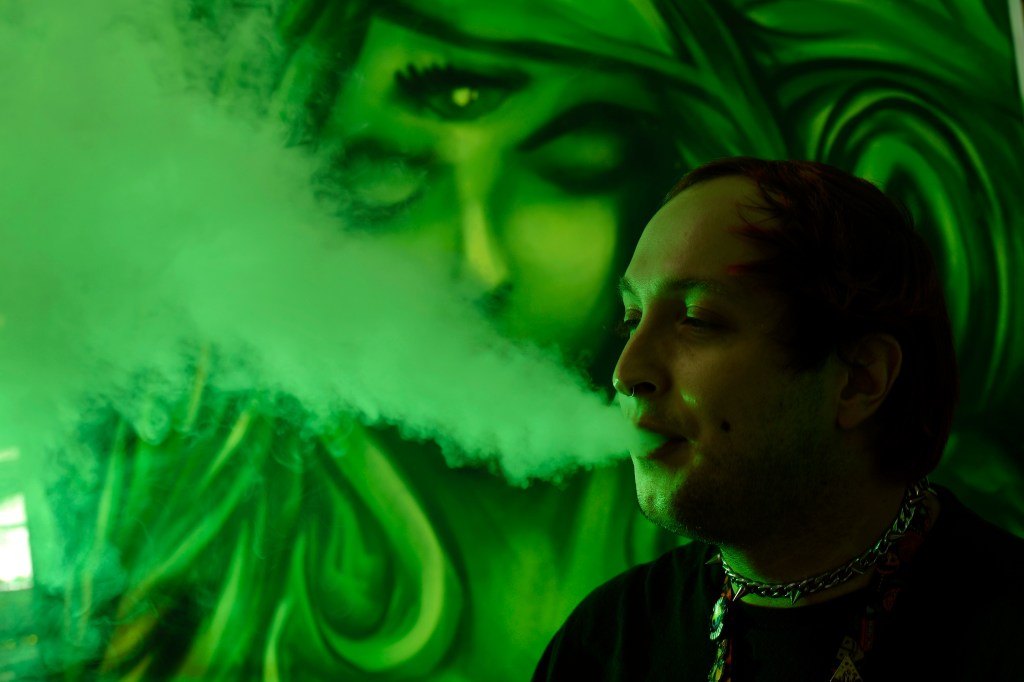The Denver City Council voted Monday to ban the sale of nearly all flavored tobacco and nicotine products in the city limits.
The council majority ignored arguments from convenience store and smoke shop owners who faced potentially major revenue losses and warnings about the potential of a black market for flavored products. Instead, they have heeded calls from public health and children’s advocates who have decried products like these e-cigarettes with strawberry mango as a lure that can lure young people into a life of addiction.
“By supporting this ban, we are not pretending to solve every problem, but we are creating more distance between something that is hurting our children,” said Councilor Flor Alvidrez. “I have seen firsthand how tobacco products, especially when introduced at a young age, can shape a lifelong struggle.”
Monday’s decisive 11-1 vote came three years and 10 days after an earlier iteration of the council voted to approve its own ban on flavored tobacco. Then-Mayor Michael Hancock vetoed the council’s ban in 2021, citing the negative impact on small businesses as part of the rationale behind his opposition.
This time, Mayor Mike Johnston has expressed his full support. His government has described it as a crucial public health policy – although his signature is not yet on the passed bill.
The lone no vote came from Councilman Kevin Flynn, who doubled down on his belief that his colleagues’ decision will not prevent young people in Denver from obtaining products that remain legal in many surrounding communities.
Denver police officials testified at a commission hearing earlier this month that the department is not concerned about the development of a black market around flavored tobacco and that convenience stores may in fact be less desirable targets for theft if they stop carrying those products. But Flynn stood firm Monday.
“Bans create black markets. We know this to always be true,” Flynn said. “Someone will buy this in Lakewood, bring it to Denver and sell it at a higher price.
But Councilman Darrell Watson, one of three co-sponsors of the ban, pushed back. Data from every state and municipality with similar bans shows a decline in access for young people, Watson said.
During a public hearing, the board heard from medical professionals, including epidemiologist Tessa Crume.
“The tobacco industry must secure its financial future by thinking ahead and understanding who its customers of tomorrow will be,” Crume said of the industry’s focus on protecting its flavored product supply. “Nicotine as a drug, regardless of the delivery mechanism, encourages repeated use and dependence, just like cocaine and heroin.”
Crume’s grim description came against speakers who identified themselves as former law enforcement officers who issued dire warnings about the risk of rising crime if the ban passes. Among them was Carlos Sandoval, who suggested that criminal organizations in other countries will see tobacco as a low-risk profit opportunity.
“Cartels are bringing e-cigarettes across the border,” Sandoval said. “Cartels and organized crime will grow stronger under Denver’s ban.”
Dharminder Singh, a retailer with multiple locations selling flavored tobacco products in Denver, suggested the city is being hypocritical by going after nicotine when marijuana is legal citywide.
“We promote things that are more dangerous to society, and we take away things that have been legalized,” he said.
Other retailers condemned the council members for what they described as a rushed process that left no room for negotiation or cooperation with law-abiding store owners.
But Watson noted that he and his colleague worked on the ban for eight months, including more than 50 stakeholder meetings, and even paused the council’s approval process during the month of November. That pause resulted in hookah tobacco being exempted from the ban due to its significance to people from the cultures of the Middle East and North Africa.
The ban attracted significant lobbying efforts from tobacco companies and groups representing large and small retailers. In ads in JS, a lobbying group backed by tobacco industry giant Philip Morris International decried the potential sales tax losses for the city.
But during committee-level testimony on Dec. 4, Denver Health Hospital CEO Donna Lynne noted that taxpayers often bear the brunt of the long-term costs of the health effects of tobacco and nicotine use.
Councilwoman Serena Gonzales-Gutierrez quoted Lynne in her closing arguments in favor of the ban.
“When we talk about economic impact, that’s what we’re talking about,” she said.
Stay up to date on Colorado Politics by signing up for our weekly newsletter, The Spot.
Originally published:

